
English is chock full of metaphorical phrases that no one could ever take at face value. No one is going to fly off a literal handle, nor do we ever put our noses near a grindstone, even if we knew what it was. And do we ever check whether the grass is greener on the other side? Sometimes, though, just as sure as ‘literally’ has now entered the dictionary to mean anything but (prompting many critics to literally laugh their heads off), many of our most bizarre expressions did enjoy a literal meaning as well as a metaphorical one.
lick into shape
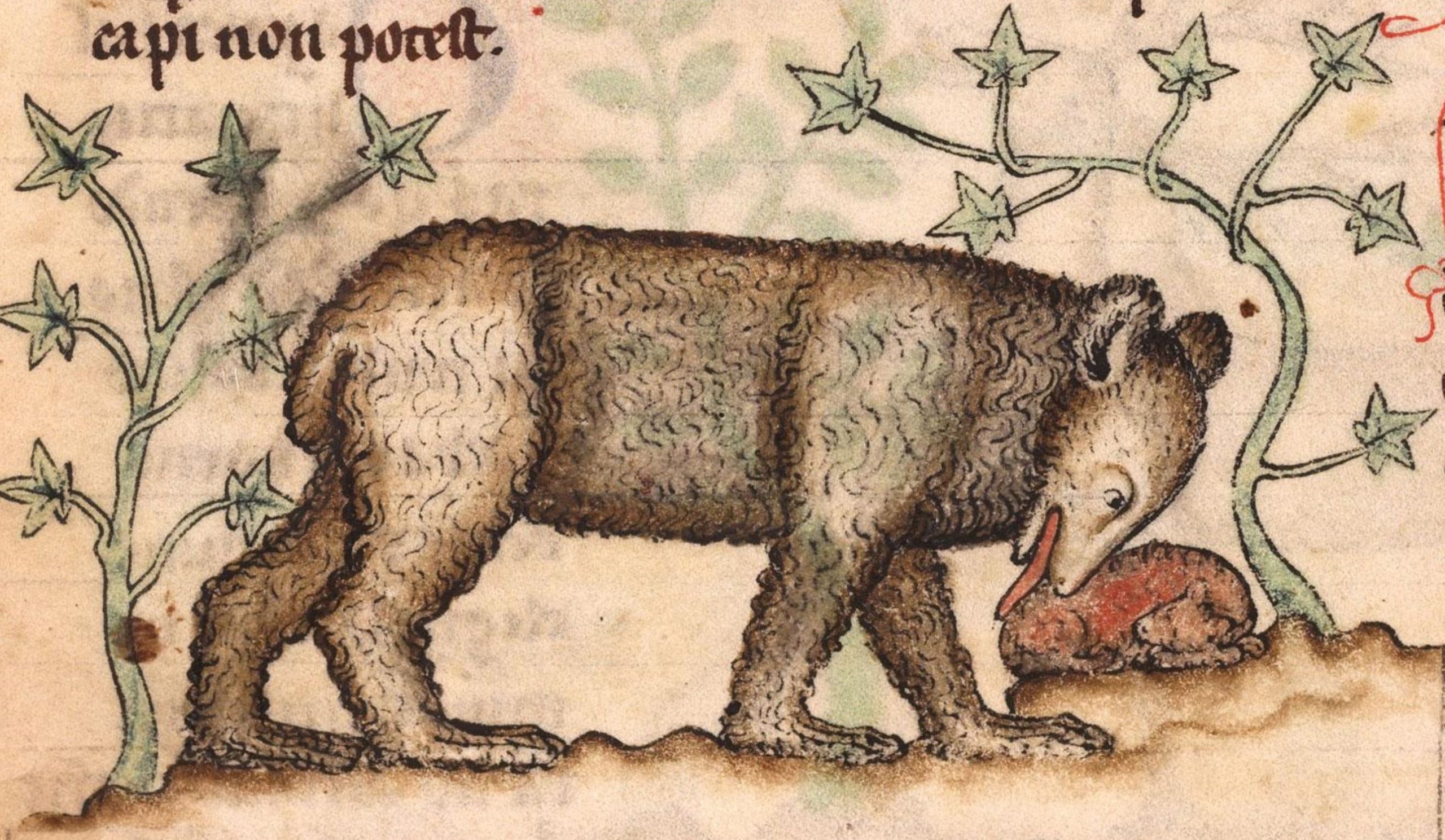
The bear’s cub is born as a lump of flesh; the bear has to lick it into its proper shape.
For centuries, right up to Shakespeare’s day, it was believed that bear cubs were born as formless, furry blobs needing to be licked into bear shape by their mothers. Whilst (sadly) it may not be factually correct, it did give rise to our expression of licking something into shape by getting it into order.
READ MORE: SUSIE DENT’S TOP TENS: 10 WORDS FOR DRINKERS
stealing someone’s thunder

Who knew this expression for stealing the limelight began with one production company nicking a sound-effects machine from another in the 18th century? In this case – one that replicated the sound of thunder!
paint the town red
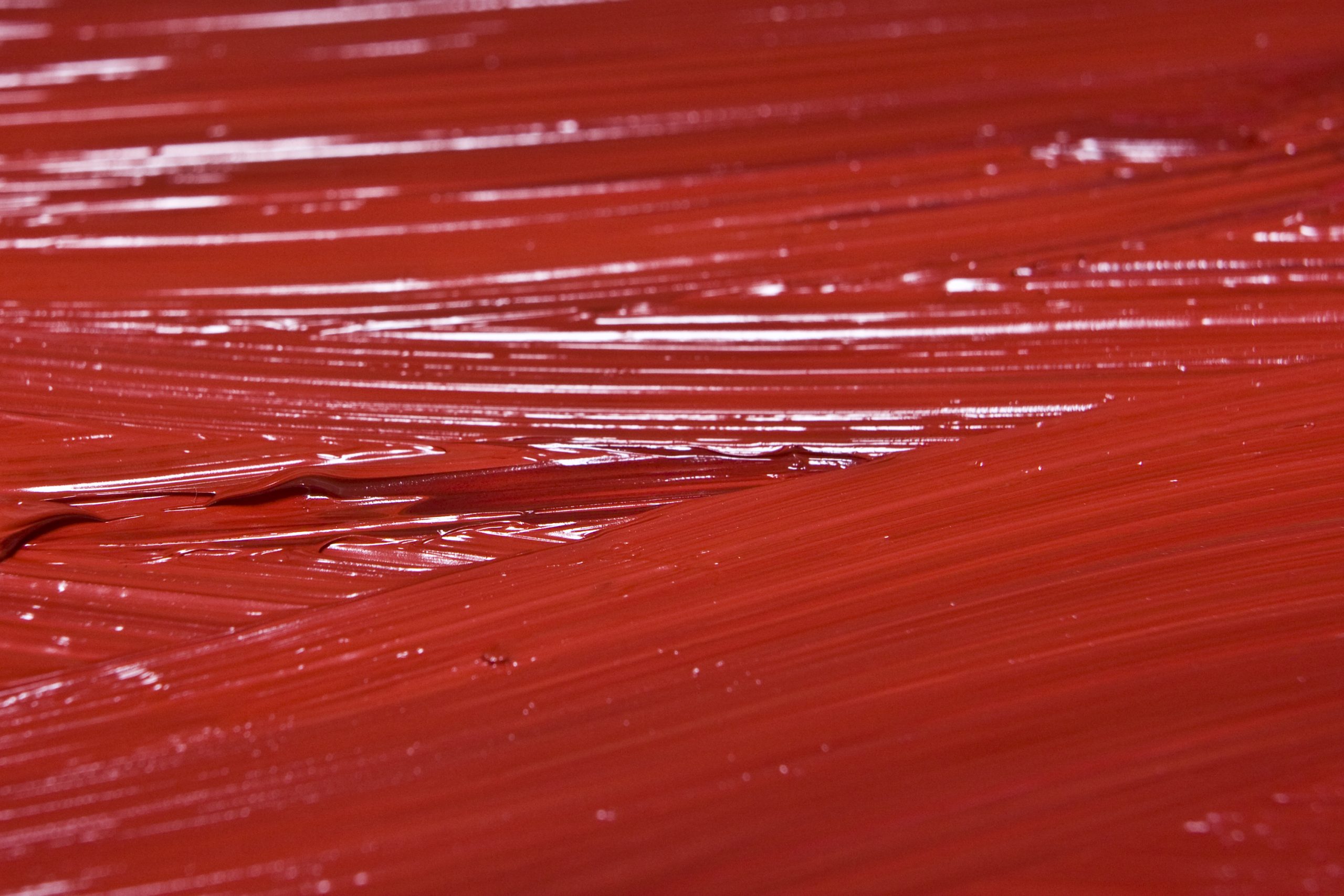
Although evidence is a bit lacking, tourist guides in Melton Mowbray will tell you that painting the town red began with an aristocratic rowdy in the 19th century. It is said that after a particularly rowdy night out, the Marquis of Waterford and his mates barricaded a toll keeper in his house and stole his red paint, proceeding to splash it all over town as part of their drunken revelries.
READ MORE: SUSIE DENT’S TOP TENS: 10 WORDS TO DESCRIBE A GOVERNMENT
bootlegging
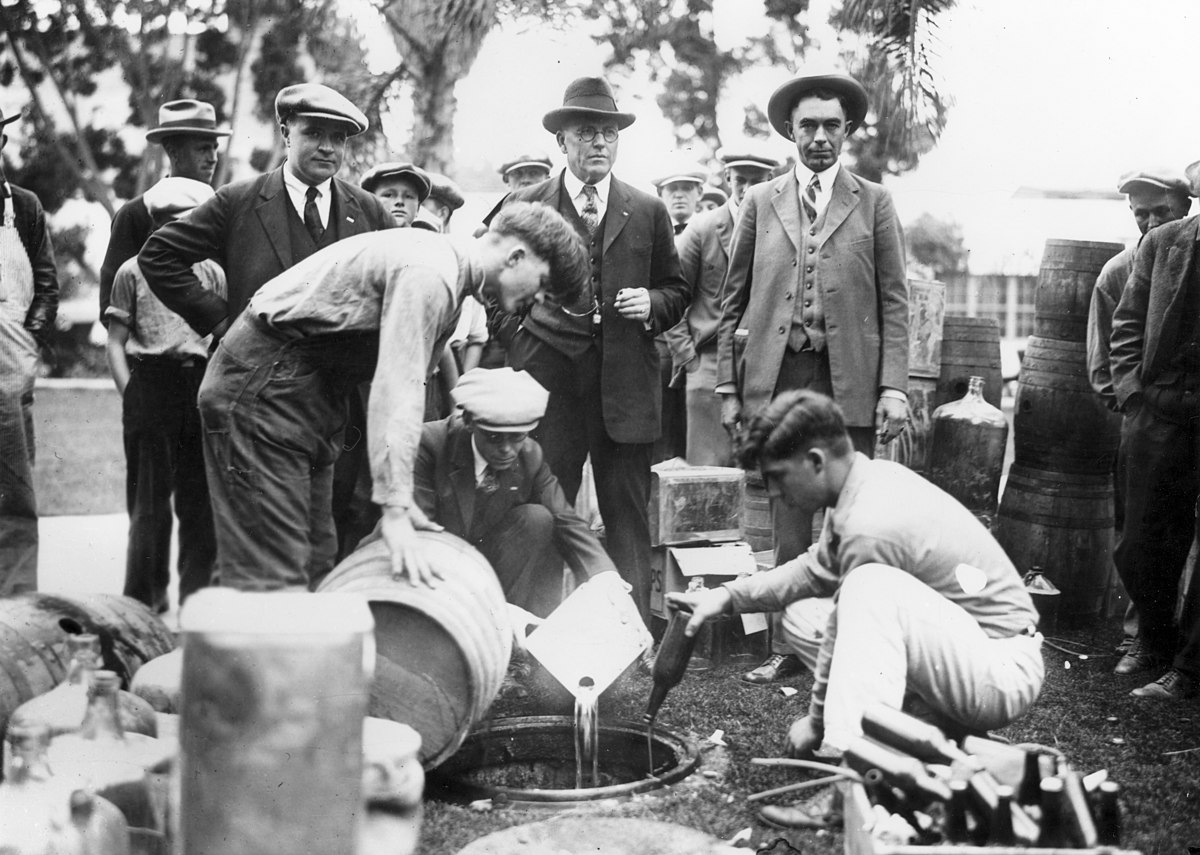
Californian police agents dump illegal alcohol in 1925, prohibition-era photo (Courtesy Orange County Archives).
The illicit trade in alcohol during the Prohibition era is well known, but hard liquor has been serious booty for centuries. Quite literally, in some cases, for bootlegging originated with smugglers who would conceal bottles in the long legs of their riding boots.
swansong
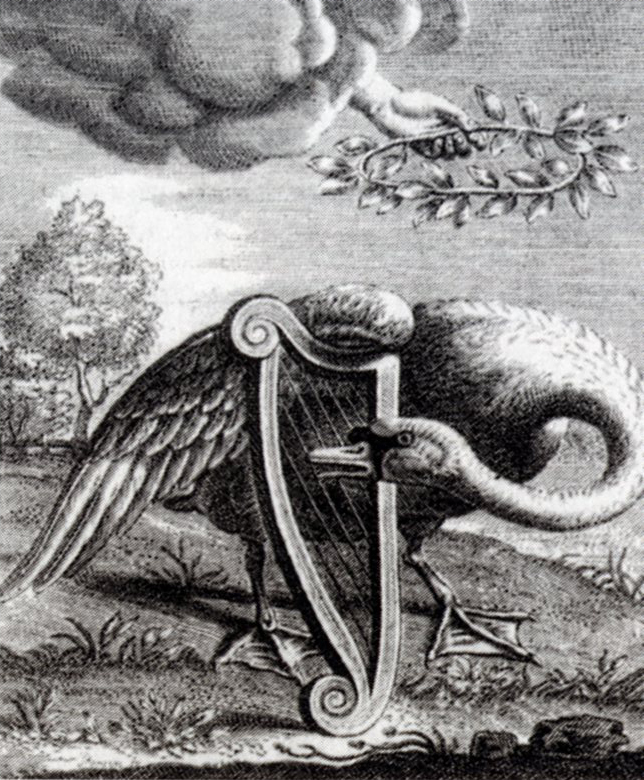
The swan song (Ancient Greek: κύκνειον ᾆσμα; Latin: carmen cygni) is a metaphorical phrase for a final gesture, effort, or performance given just before death or retirement.
In classical times, swans were believed to be born mute and remained so all their lives until just before their death when they burst into beautiful, mournful song. This poetic idea slipped into the word ‘swansong’ to describe a final, rousing performance. We now, of course, know that swans make a variety of noises, but who knew that such a literal belief kicked off a word that belongs with us still?
bury the hatchet

“Bury the hatchet” is an American English idiom meaning “to make peace”
When early settlers arrived in the US in the 17th century, they witnessed a practice among indigenous peoples of burying weapons as a token of peace towards the enemy. When we bury the hatchet today, we are doing the same, only thankfully in a far more symbolic fashion.
READ MORE: SUSIE DENT’S TOP TENS: 10 WORDS FOR FAFFING ABOUT
don’t look a gift horse in the mouth
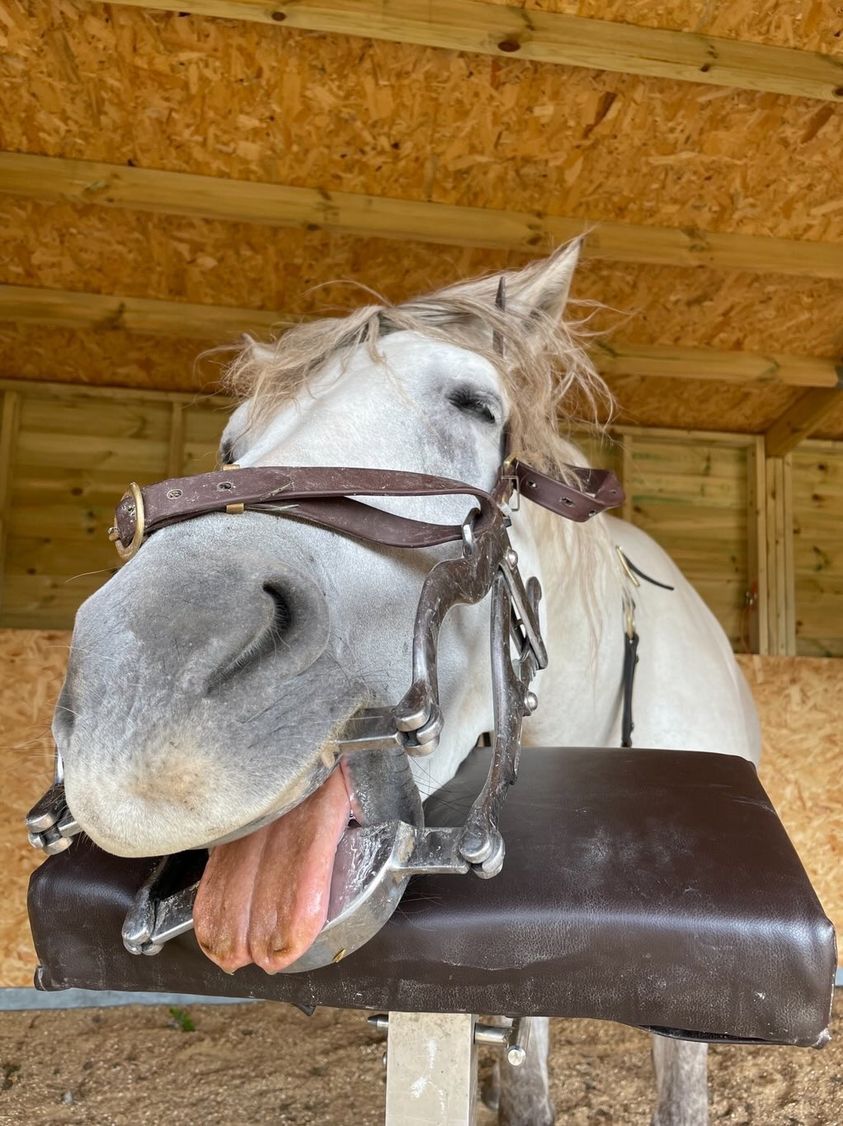
Look away now – inspecting a horse’s mouth (in this case Blossom Winzenried, the Connemara from Oxfordshire) is the height of rudeness! (Credit: @animalsonthehill)
We have been looking gift horses in the mouth by failing to grab a chance that comes our way for over 400 years. It turns out that looking at a horse’s mouth can reveal a lot, including its age. As a horse ages, its teeth move further forward, and its gums may recede slightly. It would, of course, be the height of rudeness to inspect a horse you have been gifted (once a far more common occurrence than today) by trying to assess its age. That gum recession, by the way, would make a horse’s teeth look longer, hence our expression of being ‘a bit long in the tooth’.
back to square one

This expression has inspired dozens of stories explaining its origin. Most popular of all is the explanation that football commentaries would often refer to the area of the pitch where the ball was in play, according to numbered grids. While this system certainly existed, its grids were more rectangular than square, and no evidence has been found as yet of players going ‘back to square one’. Most likely is a nod either to the children’s game of hopscotch or a snakes and ladders board. Whatever the truth, we do know that a real, physical square one was involved.
moonraker
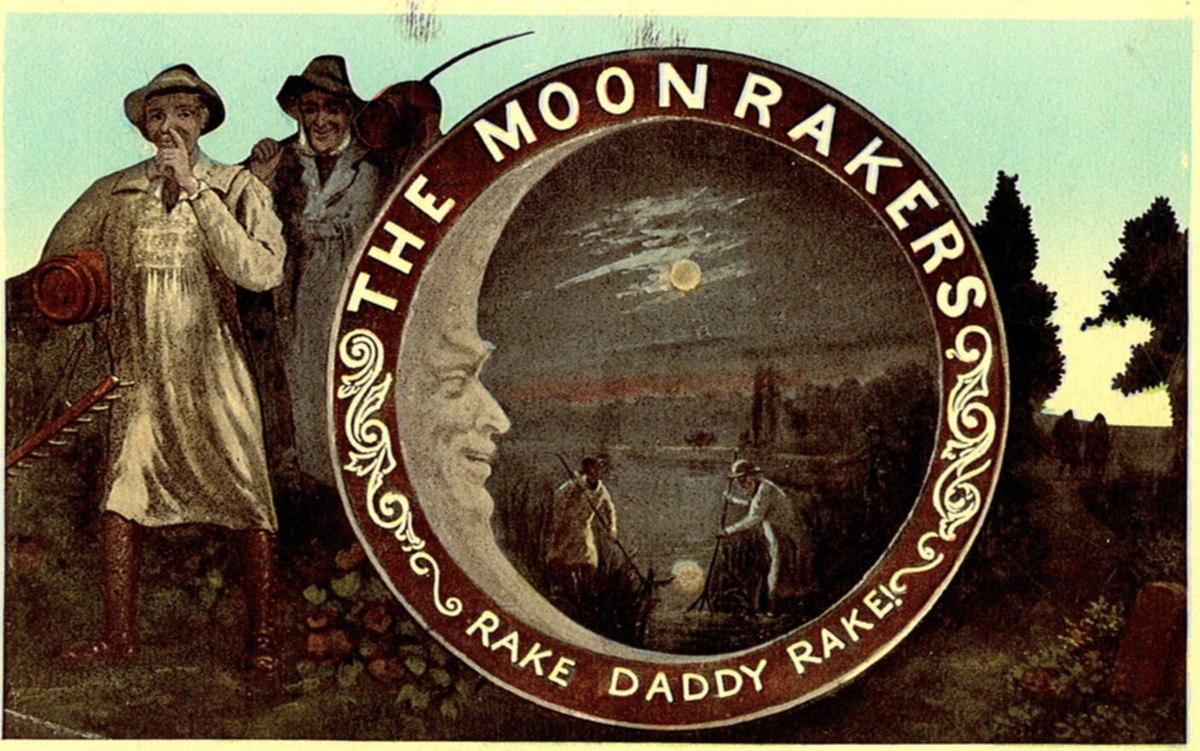
Rake, Daddy, Rake!
This nickname for an inhabitant of Wiltshire has surprisingly literal beginnings if we involve a bit of local history. The story goes that one night a group of Wiltshire men were energetically raking a pond for kegs of smuggled brandy when some tax collectors happened to be passing. Fearing the worst, the ‘moonrakers’ fooled the revenue men by feigning madness.
secretary

Attributed to British School, 17th century – Portrait of a Man with a Secretary
We should always embrace the words that wear their hearts on their sleeves but which we pass by because their sound or appearance has changed. It so happens that a secretary was once ‘secret-ary’ because they were keepers of their bosses’ secrets (in truth, today’s secretaries probably still are).





1 Comment
Fascinating Susie, thank you. I like the swansong best…